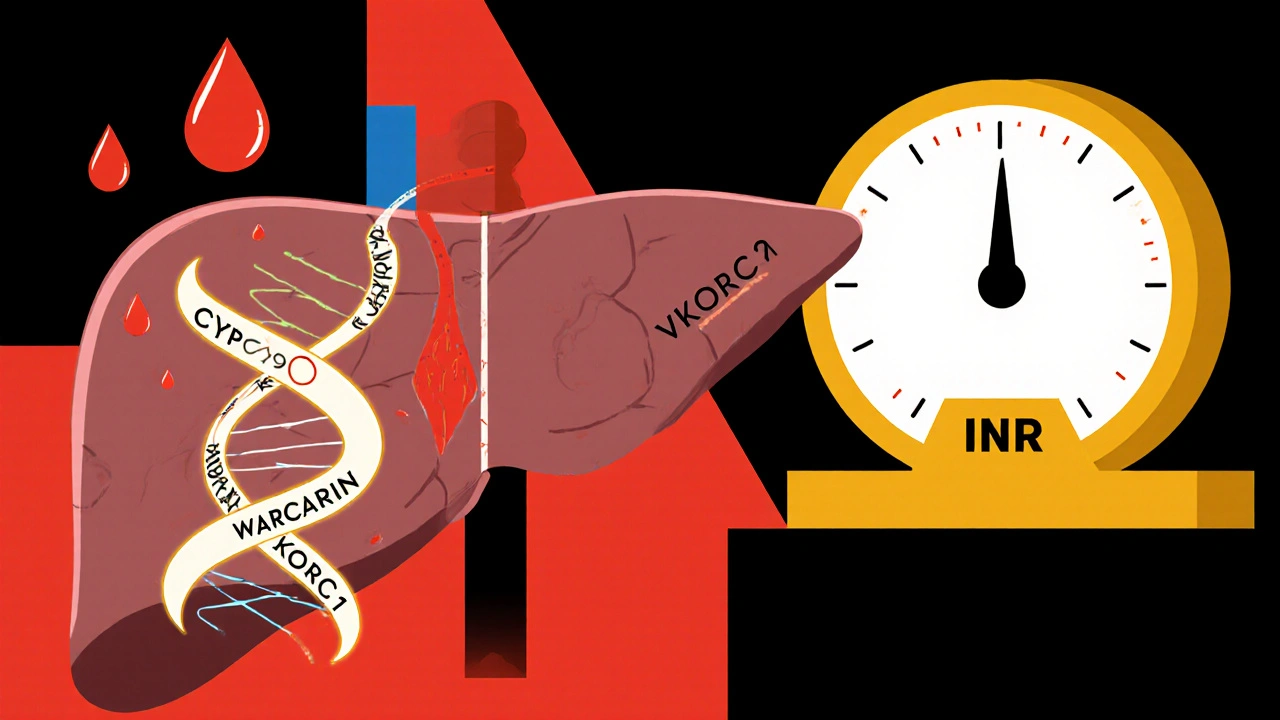VKORC1: How This Gene Affects Blood Thinners and Your Medication Safety
When you take a blood thinner like warfarin, your body doesn’t just process it the same way everyone else does. That’s because of VKORC1, a gene that controls how your liver responds to vitamin K and blood-thinning drugs. Also known as vitamin K epoxide reductase complex subunit 1, this gene is the reason two people on the same dose of warfarin can have wildly different results—one might bleed too much, another might still form clots. It’s not about how much you weigh or what you eat. It’s about your DNA.
Doctors used to guess the right warfarin dose based on age, weight, and diet. Now they know VKORC1, a key player in how anticoagulants work has common variations—like the -1639G>A mutation—that make some people ultra-sensitive to the drug. If you have two copies of the A variant, you might need less than half the standard dose. Others with the G variant might need much more. This isn’t theory. The FDA updated warfarin labels in 2007 to include genetic guidance, and studies from the NIH show testing VKORC1 cuts hospitalizations from bleeding by up to 30%.
This gene doesn’t just affect warfarin. It’s linked to how your body handles other vitamin K-dependent drugs and even some supplements. If you’ve ever been told your blood test results were "off" despite taking your pill every day, or if you’ve had a scary bleed or clot on a stable dose, VKORC1 might be the missing piece. It’s also why some people respond better to newer anticoagulants like apixaban or rivaroxaban—they don’t rely on the same pathway.
The posts below dive into real cases where genetic differences changed treatment outcomes. You’ll find guides on how VKORC1 testing works, what it means if your doctor recommends it, how it connects to other genes like CYP2C9, and why some people on warfarin need constant monitoring while others don’t. Whether you’re on blood thinners, considering them, or just curious why your dose doesn’t match your friend’s, this collection gives you the facts—no jargon, no fluff, just what you need to understand your own meds.

Warfarin Genetics: How CYP2C9 and VKORC1 Variants Affect Bleeding Risk and Dosing
Warfarin dosing varies wildly based on genetics. CYP2C9 and VKORC1 variants can make you dangerously sensitive to the drug. Testing before starting can cut bleeding risk by 32% and save lives.
read more